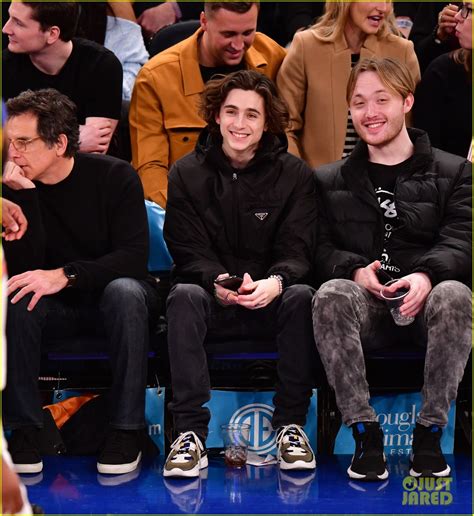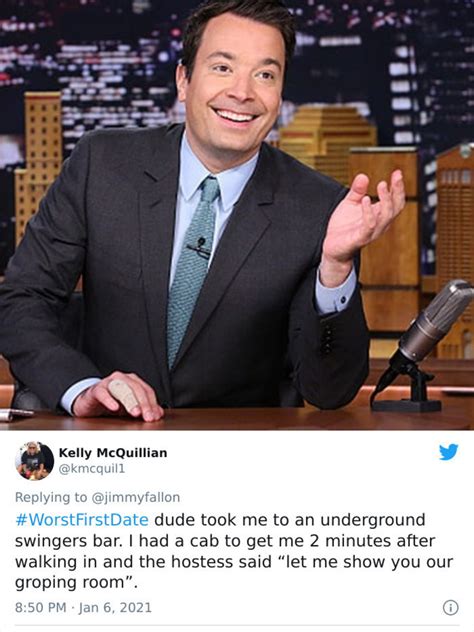
Ben Stiller, Timothée Chalamet, and Spike Lee, regulars at New York Knicks games, found themselves unexpectedly in the line of fire during a recent broadcast, drawing criticism from commentators and fans alike. The courtside trio became a talking point, not for their celebrity status, but for the perceived preferential treatment and high ticket prices associated with their coveted seats, sparking a debate about accessibility and the changing landscape of the fan experience.
During a recent New York Knicks game broadcast, comedian and actor Ben Stiller, alongside fellow celebrity regulars Timothée Chalamet and Spike Lee, became unexpected targets of criticism, drawing attention to the courtside culture and the costs associated with premium seating. Commentator Pat McAfee openly questioned the allocation of such prime seats, fueling a conversation about the fan experience and accessibility within professional sports.
McAfee’s commentary, delivered during his show, highlighted the disparity between the average fan and the celebrity elite who occupy courtside seats. “Ben Stiller, every time I go to a Knicks game, he’s courtside. Spike Lee is courtside. Timothée Chalamet is courtside,” McAfee stated, as reported by Yahoo Entertainment. He continued, “These guys are just posted up. How much money are these people making that they can just sit courtside all the time?”
McAfee’s criticism extended beyond mere curiosity about celebrity finances, delving into the economics of attending professional sporting events. He argued that the high cost of courtside tickets contributes to a widening gap between the affluent and the everyday fan, potentially pricing out loyal supporters who lack the means to afford such luxurious seating.
The remarks quickly gained traction online, sparking a wider discussion among fans and commentators alike. Social media platforms became a battleground for opinions, with some defending the right of celebrities to enjoy their wealth, while others echoed McAfee’s concerns about accessibility and the changing dynamics of fan engagement.
The controversy surrounding Stiller, Chalamet, and Lee underscores a larger debate about the evolving nature of sports fandom and the impact of wealth and privilege on the spectator experience. As ticket prices continue to rise and courtside seats become increasingly exclusive, questions are being raised about the future of accessibility and the potential alienation of the average fan.
The discussion also highlighted the role of celebrities in sports entertainment, with some arguing that their presence adds to the spectacle and allure of games, while others contend that it distracts from the athletes and the sport itself.
The incident involving Stiller, Chalamet, Lee, and McAfee’s commentary serves as a microcosm of broader societal issues related to wealth inequality and access. While celebrity attendance at sporting events is nothing new, the increasing visibility of these disparities and the willingness to openly question them suggests a shift in public perception and a growing awareness of the challenges facing the average fan.
Further fueling the controversy is the perception that celebrities often receive preferential treatment, including access to prime seating and exclusive amenities. This perceived favoritism has led to resentment among some fans who feel overlooked or undervalued.
The conversation initiated by McAfee and the subsequent online debate highlights the need for a more inclusive and equitable approach to sports entertainment. While courtside seats will likely remain a luxury item, efforts to address the concerns of average fans and promote greater accessibility could help to bridge the gap between the haves and have-nots and ensure that the passion for sports remains a unifying force.
The situation also raises questions about the responsibility of celebrities who attend sporting events. Should they be mindful of the optics of their presence and the potential impact on the fan experience? Or are they simply exercising their right to enjoy their wealth and status?
Ultimately, the controversy surrounding Stiller, Chalamet, Lee, and McAfee’s commentary is a complex issue with no easy answers. However, the discussion it has generated is a valuable step towards addressing the challenges facing the average fan and promoting a more inclusive and equitable sports culture.
Expanded Details and Context
The issue of courtside seating and its associated costs is not new, but McAfee’s direct critique of specific celebrities has brought the matter to the forefront of public discussion. The cost of courtside tickets at NBA games, particularly for high-profile teams like the New York Knicks, can reach exorbitant levels, often exceeding tens of thousands of dollars per game. This price point effectively excludes the vast majority of fans, creating a situation where the most visible and desirable seats are occupied by a select few.
This exclusivity has several implications for the fan experience. First, it creates a sense of disparity between the wealthy elites who occupy courtside seats and the average fans who may be struggling to afford even general admission tickets. This disparity can lead to resentment and a feeling that the game is no longer accessible to everyone.
Second, the presence of celebrities at courtside can sometimes distract from the game itself. While some fans may be excited to see famous faces, others may find their presence to be a distraction, particularly if they are perceived as being more interested in being seen than in actually watching the game.
Third, the high cost of courtside seats can contribute to a broader trend of rising ticket prices across the board. As teams seek to maximize revenue, they may be tempted to raise prices for all tickets, not just courtside seats, making it even more difficult for average fans to attend games.
In addition to the financial implications, the issue of courtside seating also raises questions about the role of celebrities in sports entertainment. While celebrities can bring attention and excitement to games, their presence can also be seen as a symbol of wealth and privilege, potentially alienating fans who feel excluded from the experience.
Some argue that celebrities have a responsibility to be mindful of the optics of their presence at sporting events and to avoid actions that could be perceived as insensitive or out of touch. Others contend that celebrities have the right to enjoy their wealth and status without being subjected to undue scrutiny.
The debate surrounding Stiller, Chalamet, and Lee highlights the complexities of these issues and the need for a more nuanced understanding of the role of wealth and privilege in sports entertainment. While there is no easy solution, a greater awareness of the challenges facing the average fan and a commitment to promoting greater accessibility could help to create a more inclusive and equitable sports culture.
The criticism also touches upon the broader issue of wealth inequality in society. As the gap between the rich and the poor continues to widen, issues like the accessibility of sporting events become increasingly relevant. Courtside seats, in this context, become a symbol of the vast disparity in wealth and opportunity.
Furthermore, the conversation sparked by McAfee’s comments reveals a growing sentiment among fans that sports should be about the game itself, and not about the spectacle of celebrity attendance. Many fans feel that the focus should be on the athletes and their performance, rather than on the famous faces in the crowd.
This sentiment is not necessarily anti-celebrity, but rather a call for a more balanced and authentic fan experience. Fans want to feel like they are part of a community that shares a passion for the sport, rather than feeling like they are spectators at a show that is primarily designed to cater to the wealthy and privileged.
The response to McAfee’s comments also highlights the power of social media in shaping public opinion. The online debate that followed his remarks demonstrated how quickly and easily opinions can spread, and how a single comment can spark a wider conversation about important social issues.
Social media has also given fans a voice that they may not have had in the past. They can now directly express their opinions about the fan experience and hold teams and celebrities accountable for their actions.
The situation involving Stiller, Chalamet, Lee, and McAfee’s commentary is a reminder that sports are not just about entertainment, but also about community, identity, and social values. The accessibility of sporting events and the way they are experienced by fans are important issues that deserve attention and discussion.
Teams and leagues have a responsibility to create a fan experience that is inclusive, equitable, and authentic. This may involve taking steps to address the high cost of tickets, promoting greater diversity in the stands, and ensuring that the focus remains on the athletes and the game itself.
Ultimately, the goal should be to create a sports culture that is welcoming to all fans, regardless of their wealth or status. This will require a collaborative effort from teams, leagues, celebrities, and fans themselves.
The incident also underscores the shifting dynamics of media and commentary. McAfee’s platform, built on a direct and often unfiltered style, resonates with many viewers who appreciate his candid approach. This contrasts with more traditional media outlets that may be perceived as being more cautious or restrained.
McAfee’s willingness to address potentially controversial topics, such as the issue of courtside seating, has contributed to his popularity and influence. He has become a voice for many fans who feel that their concerns are not being heard by the mainstream media.
The success of platforms like McAfee’s also highlights the growing importance of authenticity in media. Viewers are increasingly drawn to commentators who are perceived as being genuine and relatable, rather than polished and corporate.
This trend has significant implications for the future of sports media, as traditional outlets grapple with the challenge of adapting to a changing landscape. They must find ways to connect with viewers in a more authentic and engaging way, while also maintaining their journalistic standards.
The controversy surrounding Stiller, Chalamet, and Lee serves as a case study in how seemingly minor incidents can spark wider conversations about important social issues. It also highlights the power of media and social media in shaping public opinion and holding individuals and institutions accountable.
The long-term impact of this incident remains to be seen, but it has undoubtedly raised awareness of the challenges facing the average fan and the need for a more inclusive and equitable sports culture.
The incident also raises questions about the level of scrutiny that celebrities face in their everyday lives. While they often benefit from their fame and status, they are also subject to intense public attention and criticism.
This scrutiny can be particularly challenging when it comes to issues like wealth and privilege. Celebrities may be criticized for simply enjoying the fruits of their success, even if they are not actively trying to flaunt their wealth or exclude others.
The line between legitimate criticism and unfair harassment can be difficult to draw, and celebrities often find themselves navigating a complex and often unforgiving public landscape.
The situation involving Stiller, Chalamet, and Lee highlights the need for a more nuanced and empathetic approach to covering celebrities and their lives. While it is important to hold them accountable for their actions, it is also important to recognize that they are human beings who are subject to the same pressures and challenges as everyone else.
Ultimately, the goal should be to create a media culture that is both informative and responsible, and that avoids perpetuating stereotypes and contributing to unnecessary negativity.
The broader implications of this event touch upon the accessibility of leisure and entertainment for different socioeconomic groups. As societal wealth becomes increasingly concentrated, many forms of recreation and cultural experiences become inaccessible to a significant portion of the population.
This trend extends beyond sports to include concerts, theater, fine dining, and travel. The increasing cost of these activities contributes to a sense of inequality and exclusion, further dividing society along economic lines.
Addressing this issue requires a multifaceted approach, including policies that promote greater income equality, initiatives that make leisure activities more affordable, and efforts to foster a sense of community and inclusion.
The incident surrounding Stiller, Chalamet, and Lee serves as a microcosm of these broader societal challenges. It is a reminder that the accessibility of leisure and entertainment is not just a matter of individual choice, but also a matter of social justice.
The ongoing conversation about courtside seating and celebrity attendance also brings into focus the role of sponsors and corporate partnerships in shaping the fan experience. Often, prime seating is allocated to sponsors as part of marketing agreements, further limiting availability for individual fans.
This corporate influence can create a perception that the game is more about business than about the sport itself. Fans may feel that their interests are being secondary to the interests of corporations.
Teams and leagues need to carefully consider the balance between generating revenue through sponsorships and maintaining the integrity of the fan experience. They need to ensure that corporate partnerships do not come at the expense of accessibility and affordability for the average fan.
Frequently Asked Questions (FAQ)
1. What exactly happened at the Knicks game that caused the controversy? During a broadcast of a New York Knicks game, commentator Pat McAfee criticized the regular courtside presence of celebrities like Ben Stiller, Timothée Chalamet, and Spike Lee, questioning how they could afford such expensive seats and implying that it contributes to the inaccessibility of games for average fans.
2. What was Pat McAfee’s main point of contention? McAfee’s main point was to highlight the disparity between the wealthy elite who can afford courtside seats and the average fan who may struggle to afford even regular tickets. He questioned the fairness of this situation and suggested that it contributes to a growing sense of alienation among fans. As quoted from the original source, McAfee stated, “How much money are these people making that they can just sit courtside all the time?”
3. How did Ben Stiller, Timothée Chalamet, and Spike Lee react to the criticism? The article does not detail any specific reactions from Ben Stiller, Timothée Chalamet, or Spike Lee regarding McAfee’s comments. It primarily focuses on the commentary itself and the subsequent online discussion it generated.
4. What are the broader implications of this incident for sports fans? The incident highlights a growing concern about the accessibility and affordability of sporting events for average fans. It raises questions about the role of wealth and privilege in sports entertainment and the potential for alienation among fans who feel excluded from the experience. It has sparked a wider discussion about the economics of sports and the impact of rising ticket prices.
5. What can teams and leagues do to address the concerns raised by this controversy? Teams and leagues can take several steps to address these concerns, including: exploring options for more affordable ticket pricing, creating more diverse seating options, promoting initiatives that make games more accessible to low-income fans, and ensuring that the focus remains on the athletes and the game itself, rather than solely on celebrity attendance or corporate interests. They could also focus on fostering a stronger sense of community and inclusivity among fans.









